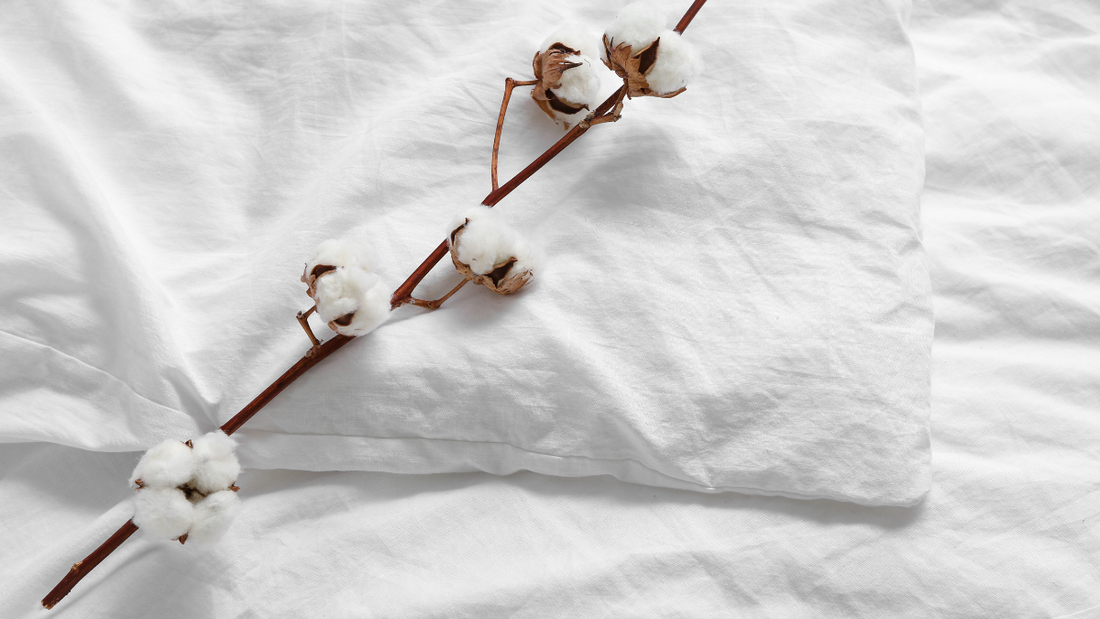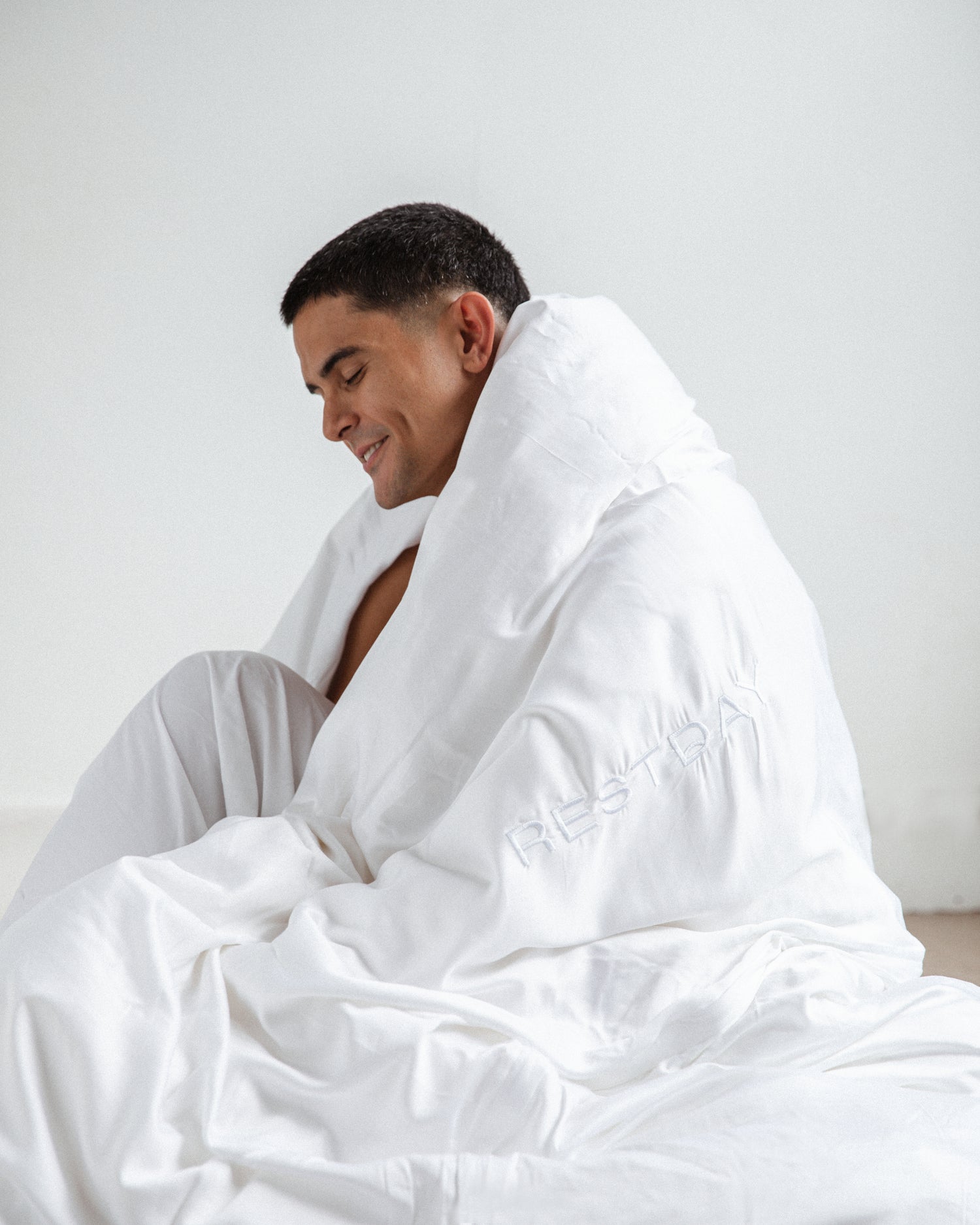
Bamboo vs Cotton Sheets: Pros, Cons, and Which One to Choose
Share
When it comes to investing in high-quality bedding, your choice of material plays a significant role in your sleep quality — especially if you live in a hot climate or have sensitive skin.
Restday breaks down the pros and cons of bamboo vs. cotton sheets, comparing their feel, sustainability, cost, and skin-friendliness. Whether you're battling night sweats or looking for that hotel-style, deep sleep comfort, this guide will help you choose the right fabric.
Understanding the Basics—What Are Bamboo and Cotton Sheets?
What are bamboo sheets made of?
- Derived from bamboo viscose or rayon
- Naturally breathable and moisture-wicking
- Often blended with other fibers (eg. microfiber or cotton)
What are cotton sheets made of?
- Typically crafted from natural cotton (percale, sateen or Egyptian)
- Can vary in thread count and quality
- Often blended with other fibers to improve quality
Cooling & Comfort—Which Sheets Win in Hot Climates?
Bamboo Sheets: The Cool, Breathable Option
- Temperature regulating
- Ideal for hot sleepers and humid climates
- Soft and silky to touch
Cotton Sheets: Traditional but Can Trap Heat
- Depending on weave, may retain body heat
- Percale is cooler, sateen is warmer
- Not moisture wicking like bamboo
Skin Health & Sensitivities—Which Is Better for Acne and Irritation?
Bamboo for Sensitive Skin and Acne-Prone Sleepers
- Hypoallergenic and antibacterial
- Less friction on skin — ideal for acne-prone individuals
- Dermatologist-recommended
Cotton’s Comfort Depends on Quality
- Organic cotton can be gentle
- Lower-quality cotton can irritate sensitive skin
Sustainability & Eco-Friendliness—Which Is the Greener Choice?
Bamboo Sheets: Fast-Growing and Low-Water Crop
- Grows quickly without pesticides
- Requires less water than cotton
- Look for OEKO-TEX or FSC certifications
Cotton Sheets: Natural but Often Water-Intensive
- Organic cotton is a better alternative to conventional
- High water and pesticide usage in traditional cotton farming
Cost Breakdown—Are Bamboo Sheets Worth the Higher Price?
Bamboo Sheets as an Investment in Quality Sleep
- Higher upfront cost, but longer-lasting
- Offers more benefits per dollar in the long term
What to Look for When Buying Sheets
- Bamboo uses GSM (grams per square meter)
- Cotton often judged by thread count (not always an indicator of quality)
Certifications to Trust
- OEKO-TEX, GOTS, FSC, and USDA Organic
- What they mean for quality and safety
Frequently Asked Questions
Are bamboo sheets better than cotton for night sweats?
Answer: Yes. Bamboo sheets naturally wick moisture and regulate temperature better, making them a superior choice for hot sleepers.
Do bamboo sheets help with acne?
Answer: Bamboo sheets are hypoallergenic and antibacterial, reducing the chance of skin irritation and acne breakouts.
Are bamboo sheets eco-friendly?
Answer: Bamboo is more sustainable than cotton when harvested responsibly. Look for sheets with sustainability certifications.
Is higher thread count always better?
Answer: Not necessarily. For cotton, thread count matters, but quality of fiber is more important. For bamboo, GSM is a better quality indicator.
Conclusion: Which Should You Choose — Bamboo or Cotton?
If you live in a hot climate, suffer from sensitive skin, or crave deeper, uninterrupted sleep, bamboo sheets are a worthy investment. While they cost more upfront, their long-term benefits in comfort, skin health, and sustainability make them a smarter choice for discerning sleepers.
Explore the best bamboo sheets and elevate your sleep experience today.

